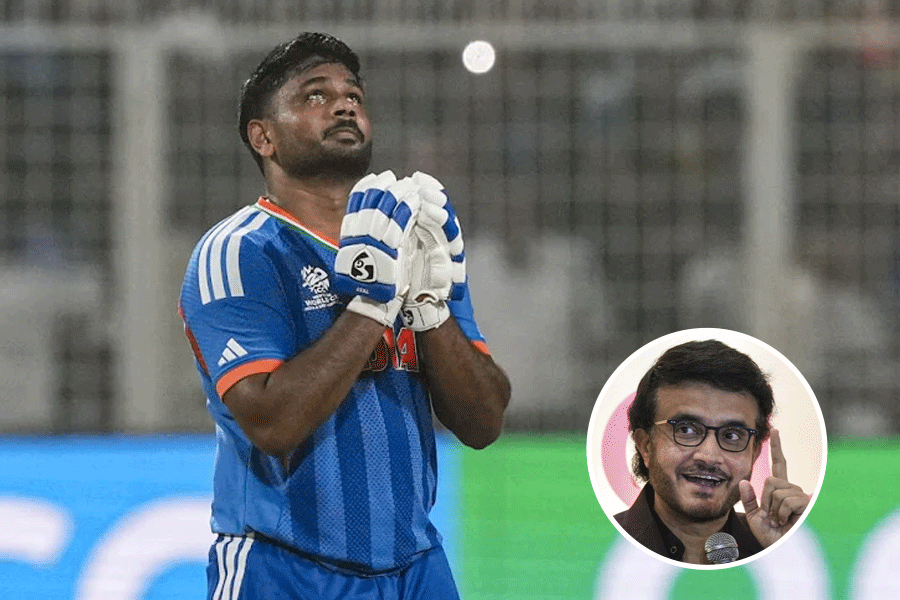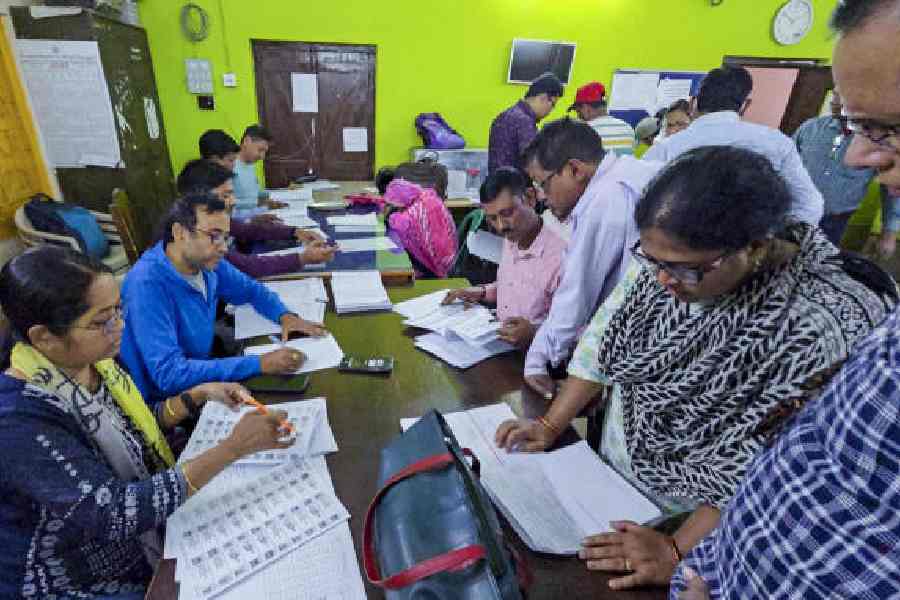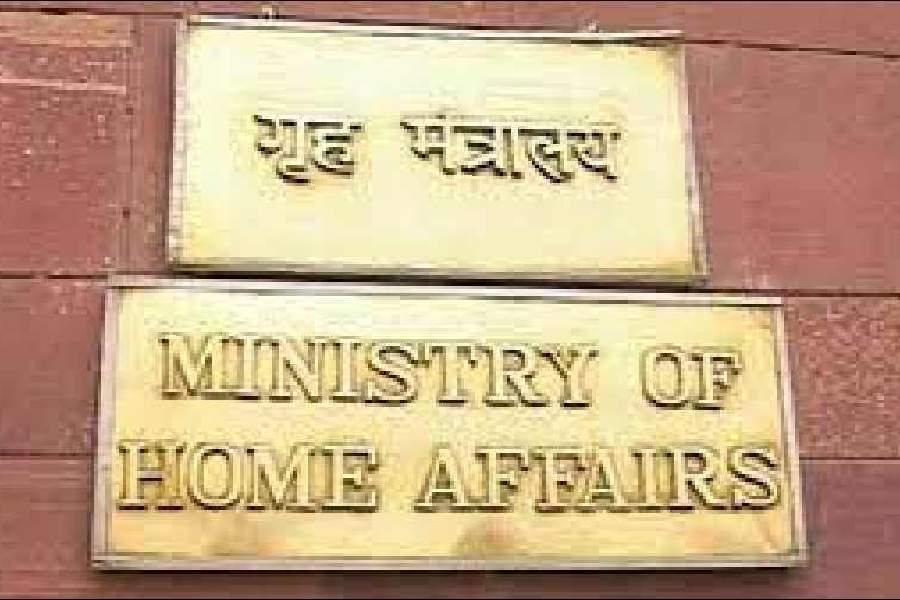|
|
| That rare man |
Tomorrow, November 14, is the birthday of India?s first prime minister. This is an appropriate moment to reassess his legacy, but only before issuing a disclaimer: your columnist is not a member or supporter of the Congress party.
It is safe to say that no modern politician had anywhere near as difficult a job as Jawaharlal Nehru?s. At independence, the country he was asked to lead was faced with horrific problems. Riots had to be contained, food shortages to be overcome, princely states (as many as 500) to be integrated, refugees (almost 10 million) to be resettled. This, so to say, was the task of fire-fighting; to be followed by the equally daunting task of nation-building. A constitution had to be written that would satisfy the needs of this bafflingly diverse and complex nation. A viable foreign policy had to be drafted in the threatening circumstances of the Cold War. And an economic policy had to be forged to take a desperately poor and divided society into the modern age.
No new nation was ever born in less propitious circumstances. Fortunately, Nehru had on his side a superbly gifted set of colleagues. His cabinet included men such as Vallabhbhai Patel, B.R. Ambedkar and C. Rajagopalachari. They were helped by the remaining officials of the Indian civil service ? the steel frame that was one of British colonialism?s unquestioned gifts to free India.
For all the assistance he got from these people, Nehru was, as the elected prime minister, most responsible for the success or failure of his government?s policies. For one thing, the other giants I have mentioned all departed early. Patel died in 1950; Ambedkar and Rajaji left the cabinet in 1951. For another, in the popular mind, it was Nehru who was most directly identified with the philosophy of the state; with ideas such as non-alignment, socialism and secularism, to which, in his writings and speeches, he gave such eloquent expression. As the Canadian diplomat, Escott Reid, wrote in 1957, ?there is no one since Napoleon who has played both so large a role in the history of his country and has also held the sort of place which Nehru holds in the hearts and minds of his countrymen. For the people of India, he is George Washington, Lincoln, Roosevelt and Eisenhower rolled into one?.
Reid?s own later book, Envoy to Nehru (1981), is one of the more thoughtful studies of a man who has been subject to more than his fair share of adulation and vituperation. Serving in Delhi from 1952 to 1957, he was able to observe Nehru closely yet dispassionately, writing about him without the partisan edge that inevitably creeps into most Indian accounts. An even better book is Walter Crocker?s Nehru: A Contemporary?s Assessment (1966), the work of a long-serving Australian high commissioner to India. Crocker, like Reid, was both a diplomat and a scholar; and like Reid again, his objectivity was deepened by his coming from a relatively obscure Western country without high stakes in the Cold War.
Nehru, writes Crocker, ?was that rare man who is both clever and good?. In his lifetime it was Nehru?s intelligence that was exaggerated; whereas after his death it has been his decency that has been depreciated. For he was, indeed, a profoundly good man. As Crocker put it, ?Nehru had less of the common and less of the mean than all but a few men. And he is to be numbered amongst the small band of rulers in history whose power has been matched with pity and mercy?. His selflessness was widely recognized: thus ?the great bulk of the people of India sensed, and they never lost the sense, that Nehru wanted only to help them and wanted nothing for himself?.
Nehru was a good man, but was he also a good prime minister? For the most part he was. There was his respect for the procedures of democracy; his steadfast support for the rights of minorities; his robust internationalism. Like his master, Gandhi, he recognized the seriousness of the forces that divided India; but like him again, he sensed that the best way to moderate conflicts was through reason and dialogue. That India was, and is, largely united and largely democratic is largely his handiwork. That we Indians do not always recognize this is owed to two reasons. First, the fact that his daughter and grandson, who also served as prime minister, were neither good nor clever. Their errors are retrospectively laid at his feet, even though he did not commit them, and even though he did not ever think (or desire) that his descendants would succeed him.
The second reason we Indians tend to give Nehru less credit than is his due is that he appears to have lived too long. Lord Mountbatten once told the historian, S. Gopal, that if Nehru had died in 1958 he would have been remembered as the greatest statesman of the 20th century. Writing in 1957, Escott Reid remarked that Nehru?s ?tragedy may be the tragedy of (Franklin Delano) Roosevelt: to remain leader of his country for a year or two after he has lost his grip and thus damage his own reputation and his country?s interests?.
This was astonishingly prescient. For it was after 1957 that the clouds began to descend on Nehru. In 1958, there was the Mundhra scandal, the first signs of serious corruption in the government; in 1959, the unfortunate dismissal of the communist government in Kerala; in 1960, rising tension on the China border; in 1961, the conquest of Goa (which marred both our non-alignment and our professions of non-violence); in 1962, the disastrous war with China. These setbacks emboldened the critics to speak of the other failures of Nehru?s regime: such as the continuing conflicts in Kashmir and Nagaland, the lack of attention to primary education, the hostility to business, the failure to effect land reforms.
I once attempted to compile a ?Nehru report card?; awarding him marks in four subjects, namely, domestic politics, foreign policy, economic policy and social policy. He scored very high on the first and last categories; his nurturing of democracy and a culturally inclusive idea of India probably gaining him 70 per cent in each subject. He scored perhaps 50 per cent in the other subjects, where his achievements ? such as assuring India a voice in the world and building an industrial or scientific base ? had to be set off against his failures in judgment, such as the underestimation of China and the relative neglect of primary education and land reform. Still, an overall score of 60 per cent seemed pretty high. Which other Indian prime minister would come close?
Nehru?s contribution to the building of modern India was immense. He made mistakes, to be sure, but other people in his place would most likely have made bigger ones. As a historian, I am quite clear that India was very fortunate to have him as prime minister for that crucial first decade after independence. His record was unquestionably better than that of those who succeeded him. It was better than that of those who came to rule the other ex-colonial countries of Asia and Africa. And, so far as one can judge these matters, it was probably better than what might have been if some other Indian, say Patel or Bose, had happened to become prime minister in 1947.
As I have said, Indians are not always best placed to understand ? still less appreciate-Jawaharlal Nehru. Let me then give the last word to a foreign historian, Robert D. King. In his fine book, Nehru and the Language Politics of India, King writes that both education and experience had elevated Nehru ?to a height from which he could judge his country?s problems without the regional prejudices and small-mindedness many of his fellow leaders brought with them?. King?s own book focussed on the resolution of the problem of linguistic states, where ?we must again observe how fortunate India was to have had Jawaharlal Nehru as its guide and preceptor during the years of the creation of independent India?.











